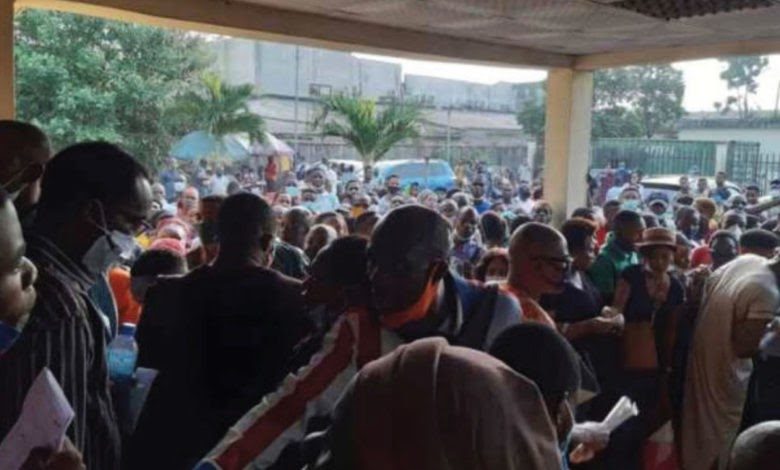NIMC Issues New Guidelines For NIN Enrolment

The National Identity Management Commission (NIMC) on Wednesday, announced that it has adopted a booking system to decongest the population of enrollees at its registration centres across the country.
This is in line with the safety measures taken by the commission to contain the spread of the coronavirus pandemic while ensuring seamless enrolment of Nigerians as a result of the new directive issued by Isa Pantami, Minister of Communications.
The Nigerian government had ordered service providers to deactivate lines without the National Identification Number (NIN). This has, however, triggered a huge demand for NIN with large crowds flooding the commission’s centres across the country.
The new guideline involves applicants visiting enrolment centres closer to them during stipulated working hours to schedule an enrolment appointment.
“Effective December 30, 2020, attending to applicants would be based on a Booking System. For Bookings, applicants are to visit any of the NIMC Offices closest to them during stipulated business hours (9 am – 1 pm),” Kayode Adegoke, the commission’s spokesperson said.
“Personal Information would be collected for the sole purpose of scheduling an enrolment appointment. Please do not include any personal information other than what is required by the booking register.”
“Once admitted into the office, a number-Issuing queue management system will be in place to ensure orderliness and strict adherence to COVID-19 protocols,” Adegoke added.
The new guideline has, however, generated mixed reactions on social media, especially the microblogging site, Twitter.
Nigerians on the site argued that the booking system should have been digital instead of going to enrolment centres to schedule a visit.
“Booking that can’t be done online? Not good enough,” @seunbamgbose15 tweeted.
Chinye Onwordi, a Twitter user stated that the new directive is basically a conduit pipe for corrupt officials to extort Nigerians.
“Easy access for those who can pay to fast track, the ordinary man will book and get December 2021 enrollment date,” Onwordi pointed out.
“This country is in a big mess. Is this NIN really necessary at this critical time when COVID-19 is at its peak? What is the Government’s priority right now? Will it not be better if this was done after a large number of people have been vaccinated?” Another user asked rhetorically.
Since the directive was issued about two weeks ago that Nigerians should link their mobile phone numbers with their NIN or risk being disconnected from the networks, there has been an upsurge in the number of people wanting to enrol for NIN across the country.
Nigeria’s Government through the Nigeria Communication Commission (NCC) had issued a two-week ultimatum to all mobile phone users to register their lines with their identity by December 30 or risk being cut-off.
The NCC had said more controls over SIM-card ownership were needed to secure electronic transactions and curb crime as insecurity bites harder in the country. The Boko Haram insurgency has been said to have been reinforced by the volatile telecom services.
Retracing its steps following public backlash, however, the government announced on Monday evening that it was extending the deadline for the provision of NIN till January 19 and February 9, 2021, depending on whether subscribers already had the identification numbers.
The development has drawn mixed reactions from many Nigerians who called the new directive superfluous at a time the country is struggling to afloat a second wave of the COVID-19 pandemic.
With a population of 200 million, Nigeria has over 198 million active mobile lines, according to data from the country’s Bureau of Statistics.
But only 42 million people have registered for the identity cards as of October 2020.
Support Our Journalism
There are millions of ordinary people affected by conflict in Africa whose stories are missing in the mainstream media. HumAngle is determined to tell those challenging and under-reported stories, hoping that the people impacted by these conflicts will find the safety and security they deserve.
To ensure that we continue to provide public service coverage, we have a small favour to ask you. We want you to be part of our journalistic endeavour by contributing a token to us.
Your donation will further promote a robust, free, and independent media.
Donate HereStay Closer To The Stories That Matter




